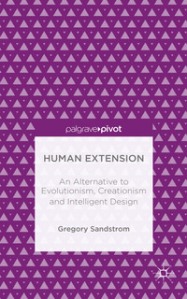The most recent paper continuing the work on human extension was published by EHU’s journal Topos.
Abstract:
The paper explores two main themes in science, philosophy and theology/worldview discourse: anthropic principles and transhumanism. After providing a brief history of the first theme, it cautions about potential dehumanisation from adopting the wrong anthropic principle as a kind of ‘disanthropic’ reasoning. Part of the solution is to reclaim a proper meaning of ‘anthropic’ for the social sciences and humanities beyond the natural sciences of physics and cosmology or statistical probabilities. The second theme is investigated both in theistic and nontheistic variants as they influence what is meant by ‘human’ in the context of evolution and development. Transhumanism is portrayed in terms of both risk and reward with the rise of neoeugenics and biotechnological human enhancements. The paper closes by briefly acknowledging Human Extension (Sandstrom 2011, 2014) as a reflexive anthropic principle that can be applied in social sciences and humanities to help overcome the ideologies of naturalism and scientism. The Human Extension approach focuses on choices and actions that bring into relief the eschatological claims of some transhumanists and posthumanists who speak disanthropically about human extinction due to technocratic artificial intelligence or who deny human exceptionalism and instead promote species egalitarism among earthly creatures.
Keywords:
anthropic principle, anthropic reasoning, evolution, naturalism, transhumanism, dehumanisation, human extension
http://topos.ehu.lt/wp-content/uploads/2015/04/Topos-2-3_2014-Sandstrom.pdf
